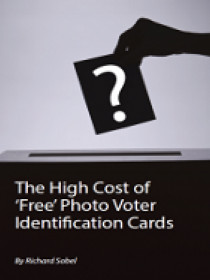Richard Sobel passed away on March 2, 2020. Read his obituary in the Princeton Alumni Weekly.
About Richard
Sobel’s expertise ranges over issues of American politics and government, public opinion, foreign policy and national security, constitutional law and civil liberties, political communications, and public policy. His recent research emphases have been on voting rights, citizenship, and national ID systems, such as E-Verify in the immigration bills, that conflict with the foundations for the rights to privacy, employment and travel. Upon learning about political participation in college and serving as a community organizer thereafter, Sobel developed a particular interest in studying modes of political participation, including participation in community planning and how work participation affects political participation, as well as more traditional questions of political involvement. Sobel has been involved with community organizing and community development for a group in Camden, NJ. He has also served on the board of two ACLU affiliates, discussing privacy and civil liberties issues and is the director of the Cyber Privacy Project, which participates in educational and advocacy projects around privacy and identification issues. Sobel was awarded the 2017 George Orwell Award for Distinguished Contribution to Honesty and Clarity in Public Language for Citizenship as Foundation of Rights: Meaning for America.
Contributions
The High Cost of "Free" Photo Voter Identifications
In the News
Publications
Explores the nature and meaning of American citizenship and the rights flowing from citizenship and the rights flowing from citizenship in the context of current debates around politics, including immigration. Explains the sources of citizenship rights in the Constitution and focuses on three key citizenship rights- the right to vote, the right to employment, and the right to travel in the United States. Explains why those rights are fundamental and how national identification systems and ID requirements to vote, work, and travel undermine the fundamental citizens' rights.
Argues a more secure constitutional basis for protecting privacy in the “justifiable reliance” standard that was developed in the Katz decision against wire-tapping.
